![]()
![]()
![]()
Use LEFT and RIGHT arrow keys to navigate between flashcards;
Use UP and DOWN arrow keys to flip the card;
H to show hint;
A reads text to speech;
17 Cards in this Set
- Front
- Back
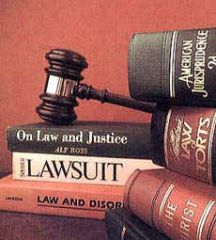
Amendment XI (11) |
This was the first amendment passed after the bill of rights. It was put into place to overrule the US supreme courts decision on the Chisholm v. Georgia lawsuit. This amendment limits lawsuits against the state. |
|
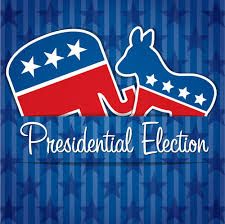
Amendment XII (12) |
The twelfth amendment says that there will be no majority vote for one person. This amendment was the creator of the electoral college. It also says that the house of representatives chooses the president and the vice president. |
|

Amendment XIII (13) |
The thirteenth amendment says that there shall be no slavery in the united states. This amendment was just restating what president Lincoln wrote in the Emancipation Proclamation. The 13th, 14th, and 15th amendments all came after the civil war and all greatly increased the rights of the american citizen. |
|
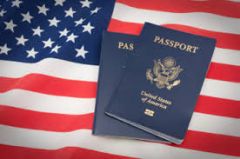
Amendment XIV (14) |
This amendment defined what being a US citizen is. It says that a citizen of the united states is someone born or naturalized in the US. The 13th, 14th, and 15th amendments all came after the civil war and all greatly increased the rights of the american citizen. |
|
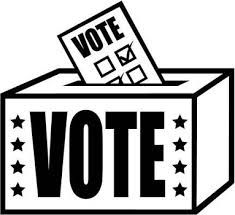
Amendment XV (15) |
This amendment gave black men the right to vote. It says that you can vote as long as you are a US citizen no matter your race or color. The 13th, 14th, and 15th amendments all came after the civil war and all greatly increased the rights of the american citizen. |
|

Amendment XVI (16) |
This amendment allows congress to pass any income tax they want without having to distribute it among the states. This amendment exempted income taxes from the direct taxes of the constitution. This was the first amendment to pass in the 1900's. |
|
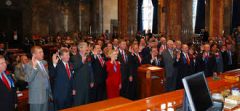
Amendment XVII (17) |
The seventeenth amendment allows for the direct election of US senators. Before this passed Americans did not vote for senators. Instead senators were elected by the state legislative. |
|

Amendment XVIII (18) |
The eighteenth amendment banned the making, transporting, and selling of alcoholic beverages. It did this however it did not band the purchasing or consuming of alcohol. This is the only amendment to be repealed. |
|
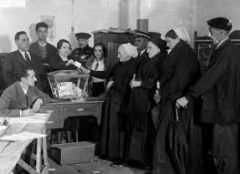
Amendment XIX (19) |
The nineteenth amendment gave women the right to vote. In the time when the US was founded women did not have the same rights as men. It took 70 years for the women's rights movement to pass the nineteenth amendment. |
|
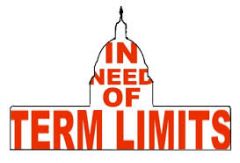
Amendment XX (20) |
The twentieth amendment moved the starting and ending dates for presidential and congressional terms. The dates for the presidents terms are from March 4th to January 20th. The dates for the members of congress terms are from March 4th to January 3rd. |
|

Amendment XXI (21) |
The twenty-first amendment was created to repeal the eighteenth amendment. This means that it allows the making, transporting, and selling of alcoholic beverages. It is the only amendment to be ratified by the state ratifying conventions. |
|

Amendment XXII (22) |
The twenty-second amendment limits the number of terms a president can serve. 1 term is 4 years. It also says that if you are president and after your first term someone else gets elected you cannot run for president again. |
|
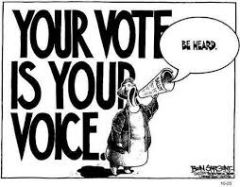
Amendment XXIII (23) |
This amendment gives the District of Colombia its own vote in presidential elections. This means that DC acts like its a state. Even if DC was its own state its population would only allow it three electors. |
|
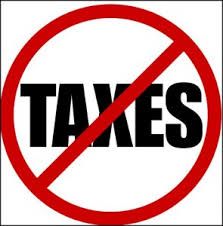
Amendment XXIV (24) |
The twenty-fourth amendment abolished the use of taxing people to vote. In that time many people did not vote because they didn't have enough money to. Not all states had a poll tax, but some did. |
|
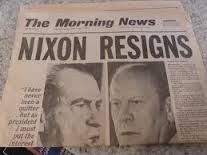
Amendment XXV (25) |
The twenty-fifth amendment deals with the succession of presidency. It establishes procedures for filling in a vacancy in the office of the vice president. This amendment also establishes procedures for dealing with presidential disabilities. |
|
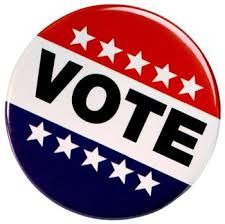
Amendment XXVI (26) |
The twenty-sixth amendment changes part of the fourteenth amendment. It says that the national voting age is 18 years old. The old national voting age was 21 years old. |
|

Amendment XXVII (27) |
The twenty-seventh amendment prohibits any law from passing that increases or decreases the salary of any member of congress. It says that the law will not take affect until the end of the term. This is the latest amendment to be passed. |

